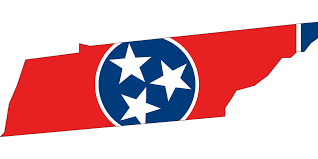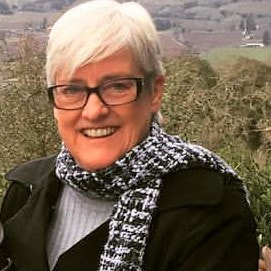|
An interview with Liesa Jenkins, MA, the Executive Director of ONE Tennessee, an organization devoted to addressing the opioid overdose epidemic statewide. by Winnie Ho, Program Coordinator Tags: COVID 19, Detailing Visits, Opioid Safety, Program Management, Rural AD Programs, Substance Use  Winnie: Liesa, thank you so much for taking the time to speak with us today about your experiences at the helm of ONE Tennessee through the past year. Can you tell us a little bit more about yourself and the AD-related work that you do? Liesa: As the Executive Director of ONE Tennessee, I have overall responsibilities that include strategic planning, funding, communication, and staffing in addition to coordinating our AD program. I’m responsible for recruiting, training, and supporting our detailers to be as effective as possible. Our mission is to combat opioid misuse and overdose, and AD is just one of many projects and strategies we have to do that. W: You certainly wear many hats in your leadership role! Can you tell us about the experiences that have shaped how you approach leadership?  L: There were a very diverse set of experiences that influence how I’ve learned to lead. It’s also important to recognize that leadership comes in all forms. I was a foreign language teacher for 10 years, I had to learn the many different ways of communicating information to students from young teens to older adults. You learn to consider the way you present your information to help get all of your students to their goals. I was also a director of a non-profit and managed volunteers. Just like my students, you quickly learn that people have many different motivations. A good leader knows how to cater to those motivations and learns how to maximize the team they’re working with. It’s also important to always remember to express gratitude towards your team, and as often as possible, remind them of the impact that they’re making. W: You’ve discussed a lot of the soft skills and characteristics that good leaders have. What about some of the technical abilities that helped you be successful at managing an AD program?  L: Before coming to ONE Tennessee, I worked at both the federal and state-level in healthcare-related consulting work. It gave me exposure to federal and state-level funding procedures, as well as the decision-making process that goes on behind the scenes. You also learn about the regulations and guidelines that AD helps to keep clinicians aware of. W: It sounds like you’ve had a fantastic journey on your way to the position that you have now in leading an AD initiative. Can you tell us a little bit more about the different community organizations that support ONE Tennessee’s AD work? L: We have support from multiple organizations including the Tennessee Pharmacists Association, the Tennessee Hospital Association, and the Tennessee Primary Care Association. They’ve helped us recruit clinicians to serve as detailers and to participate in detailing sessions. We also have support from the East Tennessee State University’s College of Public Health and the Tennessee Department of Health supporting our data collection and program evaluation. We are thankful to other provider organizations including local community pharmacists and clinicians at Alliance Healthcare Services to assist us in development and distribution of materials  W: That’s quite a dynamic bunch! At the intersection of many different groups in the community all focused on preventing opioid-related overdose, how do you keep all these different stakeholders on the same page? L: Even when you speak the same common language, not everything is always communicated and understood as intended. I work with a talented team from diverse career backgrounds, including finance, legal, communications, and policy professionals. They don’t all speak the same exact “language” because of their professional backgrounds. The role I often play in group meetings is that of a facilitator. I'm comfortable asking the so-called “dumb questions” or constantly asking for explanations. As a leader, it’s my job to make sure there is clear understanding among the folks in the room who don’t work in that field. It’s important as a leader to not only communicate well, but to also make sure everyone on your team is communicating well enough so that everyone can understand and also be understood.  W: Intentional level setting is a hallmark of effective leadership and communication. It allows meetings and decisions to be productive, and it ensures that everyone’s goals are aligned. Otherwise, important details may get left behind or not fully developed. L: Exactly. It’s also important to know that with your team, you’re never alone. You don’t need to know everything to be a leader, but you need to surround yourself with people who can collectively make decisions based on good information. Surround yourself with people who know more than you do, and listen to them. W: You picked up this role in the middle of a pandemic and with your leadership, we were able to launch our first virtual training pilot with ONE Tennessee for about two dozen detailers. It was a huge undertaking! What would your advice be for someone who’s looking to tackle big projects in their role as the leader of an AD organization?  L: I would say first and foremost – the determination to fulfill our commitments was important to me. I knew what was in our contractual agreement with our funders, and didn’t want to start off our organization with a fail in this category! Secondly, create a timeline with the concrete things that need to be finished and the resources you need to help you monitor progress along the way. Finally, in the face of making new things happen – it can be daunting when there’s a big mission to accomplish. When there’s nothing on the drawing board yet, a leader is someone who volunteers to put up the first “strawman” plan. It doesn’t need to be perfect, but it gives everyone something to build off of; it’s always better to start with something, like the first brick in the foundation. W: We’ve talked a lot about how to bring a community together to support an AD intervention. Why is community involvement important to the success of an AD intervention?  L: Well, whether you’re talking about opioids or HIV or chronic illnesses, the reality is that no one individual or organization within a community can solve a public health problem alone. Even though AD is mostly about the relationship between the detailer and the clinicians they work with, it’s informed by many other people who care about improving health outcomes. In short, the program would not be able to operate without the leadership and support of these partners! In a state as large as Tennessee, with such wide differences among rural and urban, from the Appalachian region to the Mississippi Delta, racially diverse but largely homogeneous in some places, it is important that collaboration occur at local levels as well as at state levels—both among clinical colleagues in the same community who care for the same patients, and also with support from state-level organizations who can leverage resources that may not be available in the local community. While individuals and organizations may not agree on all points, it is usually possible to find at least one shared goal that can be worked on together. As an organization, we strive to identify and then mobilize to address those common goals. There are great things ahead for us all if we continue to work together. Have thoughts on our DETAILS Blog posts? You can head on over to our Discussion Forum to continue the conversation!  In her current role as Executive Director of ONE Tennessee, Liesa draws upon her experience as an educator, a non-profit administrator, a state-level director of community health programs and a consultant to state and federal officials, as she works to advance the organization's mission to combat the opioid epidemic through collaboration and sharing of information among health professionals and communities in Tennessee. In her professional roles at Kingsport Tomorrow, CareSpark, Deloitte Consulting and the Tennessee Department of Health, Liesa has helped to develop and implement a broad range of collaborative projects at local, regional, state and national levels to improve community health, broadband access, education and literacy, employment opportunities, cultural arts exchanges, global trade, environmental protection, neighborhood revitalization, youth development and civic leadership. Her skills in strategic planning, resource development, mentoring and community organizing have been recognized with awards, including being named a Paul Harris Fellow by Rotary International, a Health Care Hero by the Business Journal of Tri-Cities, and the Commissioner's Award of Excellence from the Tennessee Department of Health. Liesa received her B.A. in French from King University in Bristol, Tennessee and her M.A. from the University of Kentucky in Lexington, Kentucky. She also holds a Certificate of University Studies from the Université de Franche-Comté in Besançon, France, and is certified as a Project Management Professional by the Project Management Institute. Liesa is a native of Glade Spring, Virginia, where she is a seventh-generation resident on her family's farm, and enjoys spending time with her three sons and their families, as well as quilting, reading, and traveling. Comments are closed.
|
Highlighting Best PracticesWe highlight what's working in clinical education through interviews, features, event recaps, and guest blogs, offering clinical educators the chance to share successes and lessons learned from around the country & beyond. Search Archives
|
